cardiovascular
Latest

Researchers grew a mini human heart to study fetal heart development
A team of scientists have grown a miniature human heart to better understand fetal heart development.
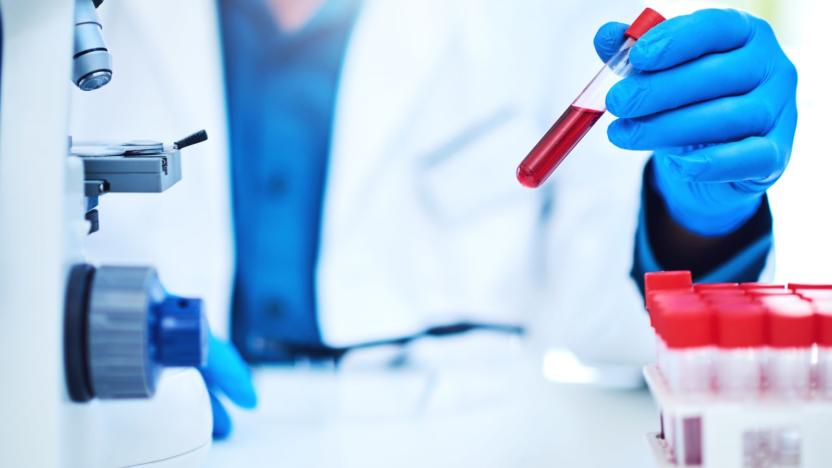
A new blood test could indicate multiple conditions with one sample
A new blood test could use a single plasma sample to assess health and predict the likelihood of developing a range of diseases. Thanks to Theranos, this may sound familiar, but unlike that debacle, this proof-of-concept is backed by research published in Nature Medicine.
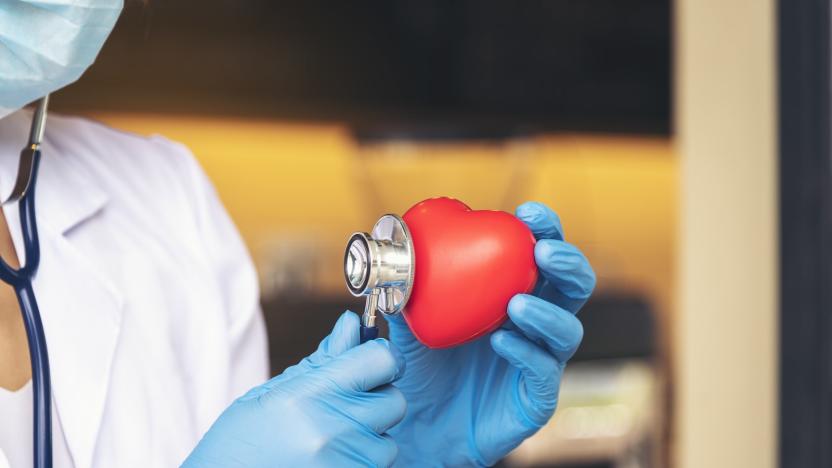
AI can gauge the risk of dying from heart conditions
AI's ability to predict threats to your health could soon include deadly heart conditions. Researchers at MIT's CSAIL have developed a machine learning system, RiskCardio, that can estimate the risk of death due to cardiovascular issues that block or reduce blood flow. All it needs is a 15-minute ECG reading -- from there, it gauges the danger based on the sets of consecutive beats in the sample. If the data is captured within 15 minutes of an event, RiskCardio can determine whether or not someone will die within 30 days, or even up to a year later.
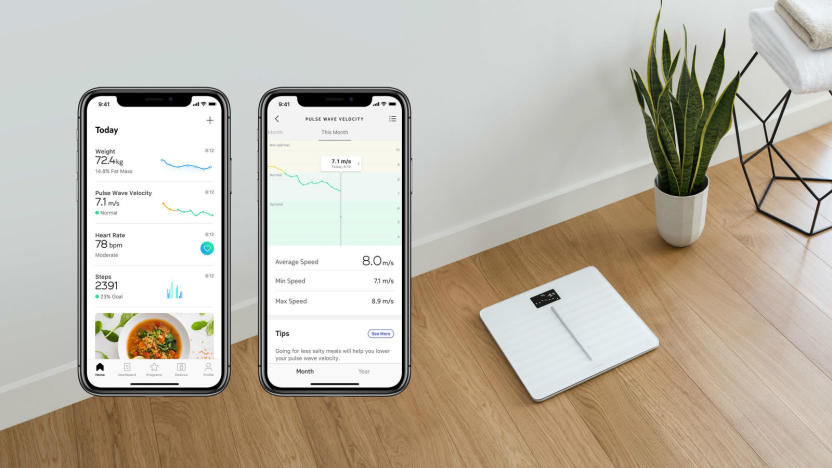
Withings restores its cardio health feature on scales in Europe
When Withings introduced pulse wave velocity (PWV) measurements on its flagship scale, it offered customers an indicator of their cardiovascular health. In addition to more standard calculations, like weight and body mass index, the Body Cardio scale used the PWV measurement to estimate the "stiffness" of users' arteries and the correlated risk of hypertension or cardiovascular incident. But in January 2018, Nokia (which then owned the company) voluntarily pulled the feature, fearing that it might need additional regulatory approval. As of today, Withings has returned the PWV measurement to its scales in Europe.
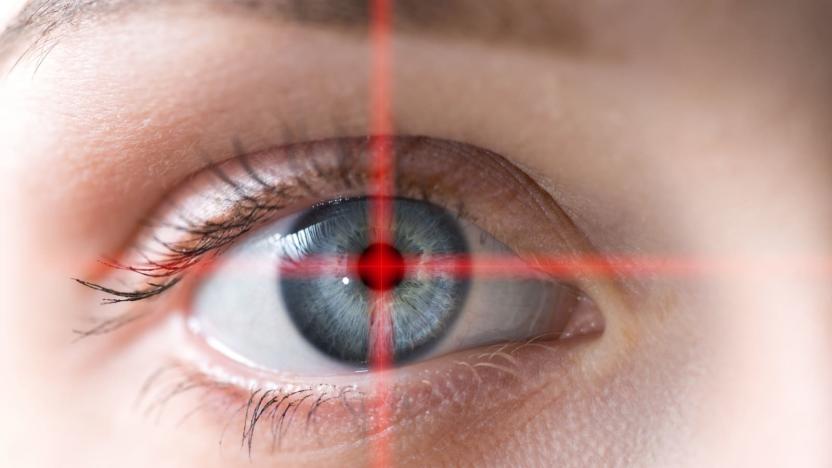
Google AI can scan your eyes to predict heart disease
Alphabet's health science company Verily has announced a wide range of projects, from developing smartwatches made for medical studies to mass-producing infected mosquitoes to curb their population. Scientists from the division now have a new endeavor: Assessing heart disease risk by staring into patients' eyes.
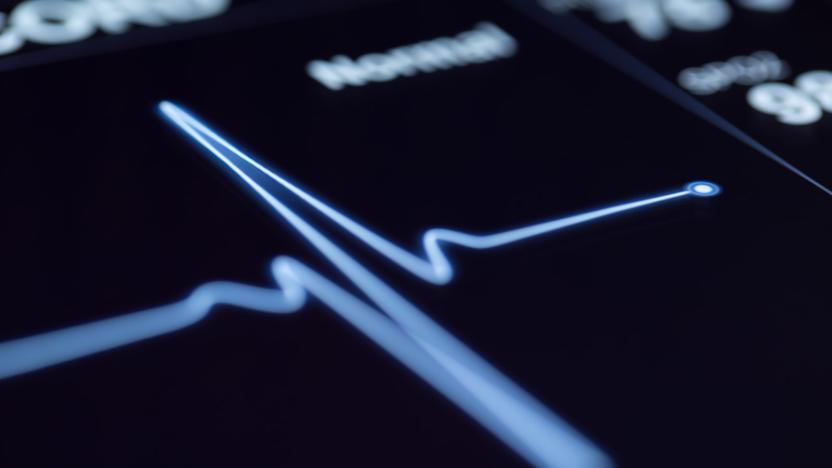
AI can predict heart attacks more accurately than doctors
An estimated 20 million people die each year due to cardiovascular disease. Luckily, a team of researchers from the University of Nottingham in the UK have developed a machine-learning algorithm that can predict your likelihood of having a heart attack or stroke as well as any doctor.

Cardiovascular health app is the UK's first ResearchKit project
One of the first health apps built with Apple's ResearchKit platform is now available to download outside the US. MyHeart Counts, which was first announced at Apple's "Spring Forward" event in March, has been opened up to iPhone users in the UK and Hong Kong for the first time. Once you've opted in, you'll be asked every few months to take part in a weeklong test, which includes seven days of activity monitoring, a 6-minute walk and a submission of personal risk-factor information. Stanford University will offer a review of your heart's health in return, as well as some advice for improving general wellness, but the idea here is to make it as easy as possible to become a volunteer. ResearchKit was, after all, invented to help scientists and medical professionals conduct large-scale studies. There are over one billion iOS devices in the world, so if even a fraction of those take some time to use the app, that's a trove of new information that will benefit medical research.

Blood turbine to power your pacemaker, become legendary band name
Why bother with risky battery-changing surgical operations when your own cardiovascular system can provide all the power your heart-shocking pacemaker will ever need? Engineers at Switzerland's University of Bern have been working on tiny turbines; turbines small enough, in fact, to fit inside a human artery. Working like a blood powered hydroelectric generator, a working prototype -- tested in a simulated artery -- has been able to produce 800 microwatts of electricity. That's roughly eighty times the power required to power the average pacemaker; such a device could provide independent, sustainable power to neurostimulators, blood-pressure sensors, and other implanted medical gizmos. Researchers are concerned, however, that a blood turbine's adding agitation of blood flow might lead to clotting, and are continuing to tweak and rework the design to minimize this risk. Similar, but unrelated cardiovascular power designs have attempted to alleviate the concern by doing away with the rotating, fluid powered components, opting to generate electricity by oscillating magnets by utilizing changes in blood pressure -- which sounds awesome, but still falls shy of "blood turbine," in the contest for most Metal medical device.





